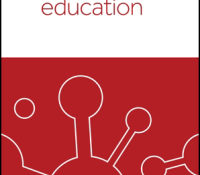tandfonline.com – Moving from traditional to responsive mathematics classrooms: a proposition of an intervention model
tandfonline.com har udgivet en rapport under søgningen “Teacher Education Mathematics”: ABSTRACT ABSTRACT This article discusses how mathematics didactics can be inspired by and further developed through responsive pedagogy, understood as feedback directed at self-regulation and self-efficacy, in mathematics teaching. The authors explain the rationale behind an intervention model for improving mathematics teachers’ feedback practices. The model is a developmental framework for intervention that is context dependent, rather than a fixed model for intervention. The overall aim with such an intervention is to establish a recursive feedback dialogue between teachers and students. Next, the backdrop for the participatory approach used in the development and implementation of such an intervention model is presented, emphasising the importance of researchers and teachers working closely together and engaging in mutual learning. The aim is to… Continue Reading

